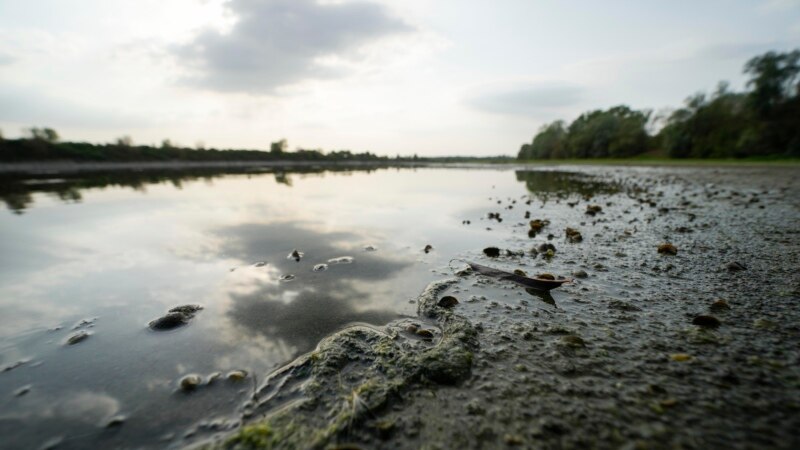Italy is facing its worst drought in 70 years and the Italian Cabinet was forced to declare a state of emergency in five northern Italian regions until the end of this year. It also announced $39.5 million in emergency funds to assist those affected by the worsening drought.
The heat and lack of rain being experienced, particularly in the Po Valley, are not only drying up the rivers but causing significant concern to the agriculture sector in what is normally one of the breadbaskets in the country.
Meuccio Berselli is the secretary general for the district authority of the Po Valley.
He says, “It’s the perfect storm, less than 70 percent of snow in the winter, four months of lack of rain, temperatures 3-4 degrees higher than the seasonal average.”
The Po River, Italy’s largest fresh water source, is vital for irrigation, just like other Italian waterways: the Arno, the Aniene and the Tiber, all of which have been suffering from much less water this summer, raising fears for crops in other areas as well. Water levels in lakes are also lower this year.
Italy’s National Research Council says there has been half the amount of rain this year compared to the average in the last three decades and up to 60 percent less in northern regions.
Coldiretti, Italy’s largest agriculture union, has warned that the drought is threatening 30-40 percent of the seasonal harvest and half the livestock farming in the Po Valley, a situation likely to spread to other areas.
Climate change and food insecurity have been a growing concern globally and are constantly discussed at high-level international meetings.
The war in Ukraine has also brought worries about new food shortages. On the sidelines of a recent ocean conference in Lisbon, Sophie Miller, an activist with the group Ocean Rebellion, said, “Climate change is going to get worse and there will be more wars and more conflicts.”
In that scenario, the early drought this summer in Italy is an additional problem. Special measures have been adopted by different regions. They include shutting off ornamental water fountains and restricting water usage to only essential use of drinking water while outlawing its use for irrigation of football fields and golf courses and washing cars and streets.
Civil protection chief Fabrizio Curcio said that it cannot be ruled out that in some areas rationing of water will also lead to a temporary closure, even during the daytime. He added that close attention is being paid to temperatures and changes in water levels. Authorities do not exclude that state of emergencies will also need to be declared for other regions in Italy and not only those in the north.

